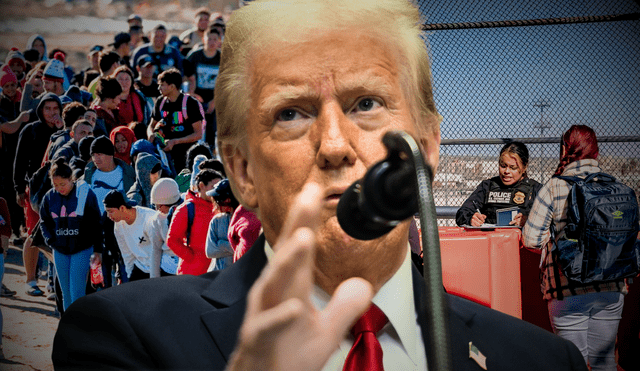"No Place to Hide": Trump greenlights Immigration Raids in educational and religious institutions in the US
The Trump administration has approved immigration raids in schools, colleges, and churches, ending protections under the sensitive location's policy. Learn what this means for immigrant communities and public institutions in the U.S.

In a controversial policy shift, President Donald Trump’s administration has authorized immigration raids in previously protected spaces such as schools, colleges, and churches. This move marks a significant departure from the “sensitive locations” policy established under the Biden administration, which had designated these areas as off-limits for immigration enforcement.
The announcement, made by the Department of Homeland Security (DHS), has sparked widespread concern among immigrant communities and advocates, who fear the consequences of enforcement actions in spaces traditionally considered safe havens.

ALSO SEE: Donald Trump withdraws the U.S. from Paris Climate Agreement, advocates for fossil fuel expansion
Policy Changes and Their Implications
The Department of Homeland Security stated that the decision to lift protections on sensitive locations aims to eliminate spaces where undocumented immigrants could avoid apprehension. According to the DHS, this policy will empower immigration officials to target what they describe as “foreign criminals” hiding within U.S. institutions.
Previously, the sensitive locations policy had restricted immigration enforcement in areas such as schools, churches, and hospitals unless exceptional circumstances justified intervention. With these protections revoked, immigrant families face heightened risks during routine activities, such as attending religious services or sending their children to school.
Effects on Vulnerable Communities
The policy shift is expected to have significant social and psychological impacts on immigrant communities:
- Fear in Educational Spaces: Children and their families may avoid attending school, fearing encounters with immigration authorities. This could lead to disruptions in education and a decline in school enrollment rates.
- Erosion of Trust in Religious Institutions: Churches and other places of worship, often seen as sanctuaries, may witness reduced participation as individuals fear raids during services.
- Hesitation to Access Healthcare: With hospitals no longer protected, undocumented immigrants may forgo seeking medical care, even in emergencies, exacerbating health disparities.
Advocates warn that these changes could create an environment of fear, making it harder for vulnerable populations to access essential services and maintain a sense of security.
Political and Legal Reactions
Critics of the policy argue that it undermines community trust and sets a dangerous precedent for immigration enforcement. They point out that such actions could isolate immigrant families, disrupt local economies, and strain public services. Proponents, however, claim that the policy ensures stricter enforcement of immigration laws and reduces areas where individuals can evade accountability.
The Trump administration’s stance is expected to face legal challenges, with advocacy groups vowing to oppose raids in these sensitive locations. The coming months will reveal how the policy unfolds and whether any modifications or reversals occur under public and judicial scrutiny.